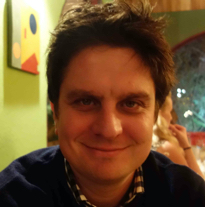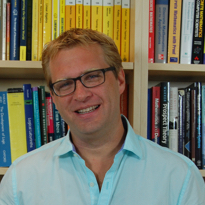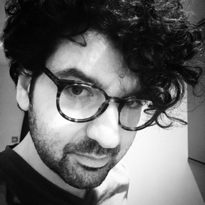Philosophy as a CMSC Upper Level Concentration
Philosophy offers a number of courses that are in many ways ideal for an Upper Level Concentration for Computer Science majors: both subjects focus on the representation of information and rational inference, and require a good deal of analytical rigor. In particular, Logic, as a subfield of both Philosophy and Computer Science, may be of special interest to CMSC students. This page first lists the 300 and 400 level Logic courses that will be taught in the Philosophy Department during Spring 2023, and then lists the upper level courses from our logic sequence that are taught every year.
Upcoming Courses (Spring 2023)
Philosophy and artificial intelligence often rely on logical models of reasoning, yet standard logic, originally designed to systematize reasoning in mathematics, applies only in domains where information is certain. In many scientific areas, as well as in ordinary commonsense reasoning, both people and machines must reason on the basis of information that is uncertain, incomplete, or even inconsistent. In dealing with information like this, probabilistic techniques are sometimes helpful, and sometimes less helpful. Areas in which probabilistic techniques appear to be less helpful include certain topics from the fields of knowledge representation, formal commonsense reasoning, legal reasoning, moral reasoning, epistemology, and explanatory AI. This course is focused on logics—sometimes known as “defeasible” or “nonmonotonic” logics—designed for reasoning with uncertain, incomplete, or inconsistent information in these areas. Course prerequisites: PHIL 271 or equivalent work in formal logic or permission of the instructor.
Instructor: John F. Horty
Semester: Spring 2023
Times: TuTh 3:00pm - 4:45pm
Location: KEY 0120
Prerequisites: Varies with topic
Offered: Usually each semester
Causation appears to be everywhere, and science often aims at formulating causal explanations of phenomena. Yet it’s hard to say what causation is. What is it for an event to cause another, aside from the two happening one after the other? Moreover, it is notoriously hard to distinguish causation from correlation. How can we correctly infer that an event was caused by another, as opposed to the two merely occurring together? This course will take an interdisciplinary approach to these issues, surveying work on causation and causal reasoning in philosophy, psychology, and computer science.
Instructor: Paolo Santorio
Semester: Spring 2023
Times: TuTh 2:00pm - 3:15pm
Location: SPH 0307
Prerequisites: Varies with topic
Offered: Usually each semester
This course provides students with a thorough understanding of the basic concepts and techniques of classical propositional logic and first-order logic with identity. We will concentrate on the construction of natural deduction proofs and on the evaluation of logical statements in semantic models. Along the way, we will study some of the concepts from set theory (sets, functions, relations) used in the definition of semantic models for logical systems. If there is time, we may introduce some alternative, or nonclassical, logics.
Although the subject of symbolic logic was developed by mathematicians and philosophers for their own special purposes (which we will discuss), logical concepts and techniques have found applications in a variety of disciplines, including computer science, economics, law, linguistics, and psychology. We may also consider some of these applications.
Prerequisites: None, though students may find it helpful to have taken PHIL 170.
Instructor: Eric Pacuit
Semester: Spring 2023
Times: TuTh 11:00am - 12:15pm
Location: SQH 1123
Prerequisites: None
Offered: Every year
This course introduces students to the basic concepts and techniques used in philosophical and economic analyses of individual and group decision making. Students will study the main foundational issues that arise when studying mathematical models of individual and group decision making, and explore key applications of these mathematical models in philosophy, politics and economics. An important aspect of the course is to introduce students to the ways in which economic analysis has been applied to issues in social and political philosophy. Readings will be drawn from the literature in economics, psychology, statistics and political science, as well as philosophy. Topics include ordinal and cardinal utility theory (including the von Neumann-Morgenstern Representation Theorem and a brief discussion of Savage’s Representation Theorem), the Allais paradox, the Ellsberg paradox, causal and evidential decision theory (i.e., different reactions to Newcomb’s paradox), a brief introduction to game theory and the Prisoner’s dilemma, voting methods, voting paradoxes, May’s Theorem, Arrow’s Theorem, strategic voting, judgement aggregation, topics in research on the wisdom of the crowd (e.g., the Condorcet Jury Theorem and the Hong-Page Theorem), Sen’s impossibility of the Paretian liberal, interpersonal comparison of utilities and Harsanyi’s Theorem.
Instructor: Eric Pacuit
Semester: Spring 2023
Times: TuTh 3:30pm - 4:45pm
Location: ARC 1105
Prerequisites: None
Offered: Every semester
Recurring Courses
This course is an introduction to logical “metatheory”—that is, to logical reasoning about logical systems themselves. Topics include alternative proof-theoretic formulations of logical systems as well as soundness and completeness theorems for propositional and first-order logic. Along the way, we will deepen our understanding of the elementary set-theoretic concepts underlying first order logic, and, if there is time, study some basic results in the semantics of first order logic (such as the Craig interpolation theorem, the Beth definability theorem, or the Lowenhein-Skolem theorem).
Offered: Once per year
Philosophical logics result from the application of logical concepts or techniques to problems of philosophical interest; these logics often have applications in other areas as well, such as AI, linguistics, psychology, economics, and law. This course will either study a particular family of philosophical logics in depth—such as modal, temporal, conditional, many-valued, intuitionistic, relevance, or defeasible logics—or else survey a number these different logical systems. This course is repeatable for up to 9 credits as long as content differs.
Offered: Usually each semester
This course introduces the formal theory of computation and then presents the central limitative results of modern first-order logic: Church’s undecidability theorem and Godel’s first and second incompleteness theorems. The primary focus of the course is a thorough technical study of these fundamental results, but we will also discuss some of the philosophical issues they raise; if there is time, we may also introduce second-order logic.
Offered: Once per year
People

Ilaria Canavotto
web: https://sites.google.com/view/ilariacanavotto/ email: ilaria.canavotto@gmail.com
Research Interests: Philosophical Logic, Artificial Intelligence, Formal Ethics, Formal Epistemology

Fabrizio Cariani
web: http://cariani.org/ email: fabrizio@umd.edu
Research Interests: Philosophy of Language, Philosophical Logic, Formal Epistemology, Judgement Aggregation, Decision Theory, Artificial Intelligence

John F. Horty
web: http://users.umiacs.umd.edu/~horty/ email: horty@umd.edu
Research Interests: Philosophical Logic, Artificial Intelligence, Ethics, Epistemology, Philosophy of Language, Philosophy of Law

Eric Pacuit
web: https://pacuit.org email: epacuit@umd.edu
Research Interests: Logic, Voting Theory and Computational Social Choice, Game Theory, Decision Theory, Formal Epistemology, Aritificial Intelligence

Paolo Santorio
web: http://paolosantorio.net/ email: santorio@umd.edu
Research Interests: Philosophy of Language, Formal Semantics, Philosophy of Mind, Philosophical Logic